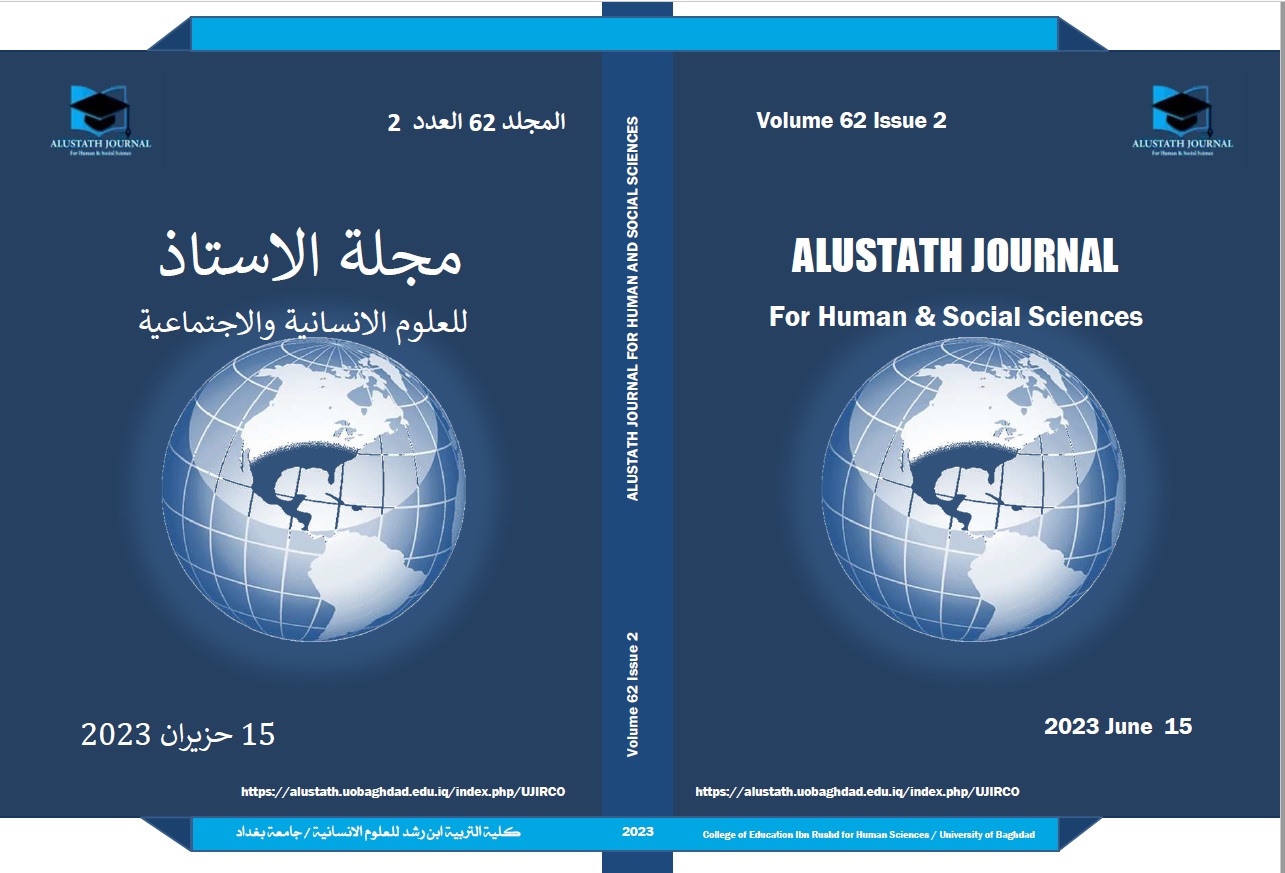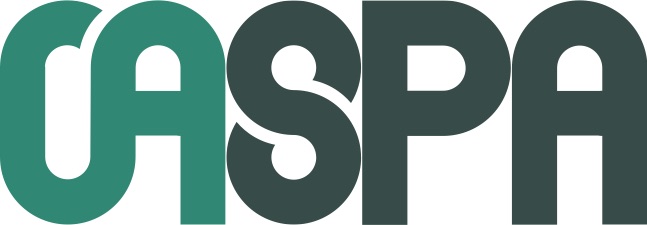واقع التعليم الألكتروني من وجهة نظر طلبة المرحلة الإعدادية في محافظة الأنبار
DOI:
https://doi.org/10.36473/ujhss.v62i2.2050الكلمات المفتاحية:
التعليم الألكتروني، طلبة المرحلة الإعداديةالملخص
يهدف البحث إلى تقصي واقع التعليم الألكتروني (الإيجابيات والسلبيات) من وجهة نظر طلبة المرحلة الإعدادية في محافظة الأنبار (المديرية العامة لتربية الرمادي), فضلاً عن تعرف دلالة الفروق في وجهات نظر الطلبة تبعاً لمتغيري الجنس والتخصص الدراسي. ولتحقيق هدفي البحث استخدم الباحث المنهج الوصفي, وتبنى الباحث استبانة (عيسان والعاني, 2007), المتكونة من (46) فقرة, منها (25) فقرة تقيس ايجابيات التعليم الألكتروني, و(21) فقرة تقيس سلبيات التعليم الألكتروني. وتم التحقق من الصدق الظاهري للاستبانة عن طريق عرضها على عددٍ من المحكمين المتخصصين في العلوم التربوية والنفسية, بلغ عددهم (12) محكماً, أجمعوا على قبول (43) فقرة, وحذف (3) فقرات, بواقع فقرة واحدة من مجال ايجابيات التعليم الالكتروني, و فقرتين من مجال سلبيات التعليم الالكتروني, فضلاً عن ذلك تم التحقق من ثبات الاستبانة. وطُبقت على عينة من طلبة المرحلة الإعدادية في محافظة الأنبار, بلغ عددهم (150) طالباً وطالبة. وبعد المعالجة الاحصائية للبيانات المستحصلة من العينة باستخدام الوسط المرجح والوزن النسبي وتحليل التباين الثنائي مع التفاعل, توصل البحث إلى النتائج الآتية: احتل مجال سلبيات التعليم الألكتروني الترتيب الأول, إذ كانت هناك (16) فقرة متحققة من مجموع (19) فقرة. وجاء مجال ايجابيات التعليم الألكتروني المرتبة الثانية, إذ كان هناك (12) فقرة متحققة من مجموع (24) فقرة, مما يشير إلى أنَّ للتعليم الألكتروني سلبيات أكثر من الإيجابيات من وجهة نظر الطلبة, فضلاً عن ذلك أظهرت النتائج أنه لايوجد فرق دال احصائياً في وجهات نظر الطلبة في ايجابيات وسلبيات التعليم الألكتروني تبعاً لمتغير الجنس, في حين كان هناك فرق دال احصائياً في وجهات نظرهم تبعاً لمتغير التحصيل الدراسي, وكان الفرق لصالح وجهات نظر طلبة التخصص العلمي. وتقدم الباحث بعددٍ من التوصيات, منها: السعي إلى إيجاد بيئة تعلمية إلكترونية تتوافر فيها البنى التحتية لهذا النوع من التعليم من أجهزة حاسوب وبرامج تعليمية وموارد تعليمية الكترونية. واقترح عددٍ من الدراسات المستقبلية, منها: مدى توافر البنية التحتية للتعليم الألكتروني في عموم جمهورية العراق.
التنزيلات
المراجع
• Abdel Karim, Maha. (2007). An evaluation study of the e-learning experience in Al-Bayan Model Schools for Girls in Jeddah, an unpublished master's thesis, College of Education, King Saud University. (from Abu Aqil)
• Abdullatif, Ahmed Mahmoud. (2020). E-learning is an effective mean for improving higher education. From the publications of the University of Babylon, College of Science.
• Ahmed, Reham Mustafa. (2012). "Using e-learning to achieve quality standards in the educational process", The Arab Journal for Quality Assurance of University Education, issue. 9, vol. 5
• Al-Hajaya, Muhammad Nael. (2010). "The Reality of E-Learning in Jordanian Universities", Specialized International Educational Journal, issue 2, Part 2 (from Hantoli).
• Al-Jabr, Hamed Saeed, Hassan, Mona Abdel Hamid, Al-Najjar, Kholoud Hamad. (2017). The difficulties of teaching computers in the intermediate stage in the State of Kuwait. The Scientific Journal, issue 33, p. 9, issued in November
• Al-Jovan, Jamila Muhammad. (2009). "Realism in a close look", article published on the website: https://www.alukah.net/sharia/0/5427/
• Al-Khalifa, Hind Bint Suleiman (1423 AH). Recent trends and developments in the service of e-learning: a comparative study between the four models of distance education. (Working paper presented to a symposium: School of the Future), held in the period 16-17/8/1423 AH , at the College of Education, King Saud University, Riyadh.
• Al-Mousa, Abdullah bin Abdul-Aziz. (2002). "E-Learning: Its Concept, Benefits, Characteristics, and Constraints", a working paper presented to the scientific symposium held by the Future School, at King Saud University, Saudi Arabia.
• Al-Muhaisen, Ibrahim Abdullah. (2003). "Electronic Learning: A Luxury or a Job", a working paper presented to the Future School symposium, held at King Saud University (16-17 Rajab, 1423 AH).
• Al-Nuaimi, Najah Muhammad. (2001). The effect of providing multimedia computer programs with access to the Internet on the level of informatics for student with external and internal control sources and their achievement in the field of educational technologies, E-school. Eighth Scientific Conference of the Egyptian Association for Educational Technology. College of Girls, Ain Shams University in Cairo, Arab Republic of Egypt.
• Al-Saqa, Ziyad Hashem, and Al-Hamdani, Khalil Ibrahim. (2012). The role of e-learning in increasing the efficiency and effectiveness of accounting education", Journal of the performance of Algerian institutions, issue. 2, (p. 45-62).
• Barnawi, Ali Bakr. (2020). "E-Learning Opportunities and Challenges", Comprehensive Electronic Magazine, issue. 27, issued in August
• Darwish, Wissam (2020). "The importance of computers in education", an article published on the website: https://sotor.com
• Eissan, Salha Abdullah, Al-Ani, Wajeha Thabet. (2007). The reality of e-learning from the point of view of students of the College of Education at Sultan Qaboos University", Dirasat Journal of Educational Sciences, issued by the Deanship of Scientific Research at the University of Jordan, Vol. 34, issue. 2, (p.: 341-356).
• Hamayel, Hussein Jadallah. (2018). "The Reality of E-Learning in the Directorates of Education in the Northern Governorates of Palestine", Dirasat Journal for Human Sciences, issue. 45, P4, Appendix 5.
• Hamzani, Shaim. (1998). The relationship of social reality with religious awareness among the Muslims of Albania. Unpublished doctoral thesis, Faculty of Social Sciences, Imam Muhammad bin Saud Islamic University, Kingdom of Saudi Arabia - Riyadh.
• Hantoli, Taghreed Muhammad Tayseer. (2016). The reality of e-learning at An-Najah National University and its role in achieving interaction between learners from the point of view of graduate students, programs of the College of Education and members of the faculty, Master's thesis, College of Graduate Studies at An-Najah National University in Palestine.
• Hossamou, Soha Ali. (2011). "The reality of e-learning at Tishreen University from the point of view of faculty members and students", Damascus University Journal, issue. 27, Supplement 1, (p.: 243-278).
• Ibrahim, Yasser Ali. (2020). The reality of e-learning in Iraq and the most important challenges. Development Magazine, issue. 1, (p. 1-5).
• Jadidi, Afifa. (2014). Motivation: its importance and role in the learning process. Maarif Magazine, issue. 17, (p.: 213-239).
• Mcloughlin, C. & Luca, J. ( 2001). "Quality in Online Delivery: What Does It Mean fro Assessment in E-Learning Environments?": Online Journal (http://www.eric.ed.gov).
• Moselhi, Zainab, and Abdelkader, Amani. (2007). "The Challenges of E-University Education in Egypt and the Opportunities to Benefit from It", Journal of the Future of Arab Education, vol. 13, issue. 46, (p.: 11-228).
• Parker, Chris, & Bustrage, Nancy, & Elliott, Robert. (1999). Research Methods in Clinical and Counseling Psychology, translated by: Najeeb Sabboura, Mervat Ahmed Shawky, and Aisha El-Sayed Rushdy, Cairo: Anglo-Egyptian Office.
• Qiu, H. (2003). "Effectiveness of e-learning".www. /P./A:pageFilesSlide…1.htm.
• Zhu, C. (2010). Teacher Perceptions of Their Roles and Adoption of Educational Technology: Challenges in the Chinese Context Educational Technology, v50 n6 p40-42 Nov-Dec












